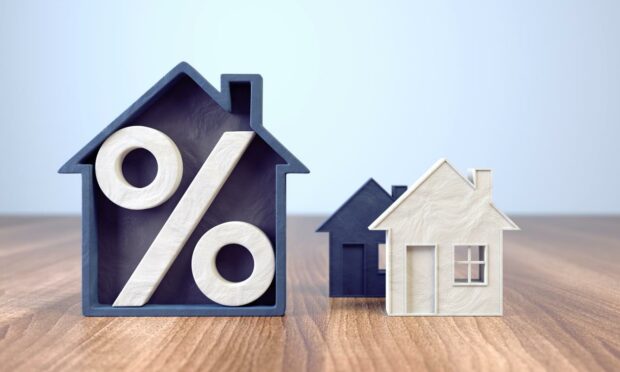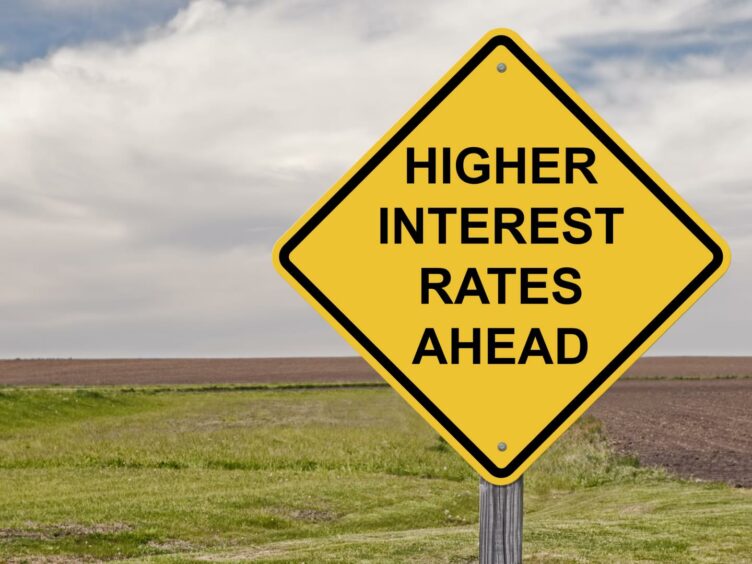Online mortgage broker Trussle has calculated the latest increase to the base interest rate could add a further £331.56 onto the average mortgage annually.
Together with the increase announced in December, it means those homeowners stuck on standard variable rate deals may end up forking out an extra £656.04 this year.
Remortgaging can save homeowners £3,900 per year, or £325 every month, on average, Trussle said.
Last Thursday (February 3) the Bank of England, faced with rising inflation, increased the base rate by 0.25%.
It follows a similar increase in December and takes the rate to to 0.5%.
Miles Robinson, head of mortgages, Trussle, said: “In the face of soaring inflation, this latest interest rise has hardly come as a surprise.
“Increasing interest rates is a common tool used by financial institutions worldwide to try and curb the rate of inflation, however, this decision will add further financial pressure to homeowners already facing a cost of living crisis.”
He added: “For those households perhaps feeling the strain on their finances, speaking to an adviser and looking at your mortgage plan can be an effective way of finding savings you didn’t even know existed.
“Our customers on average save £3,900 per year by remortgaging.”
To help homeowners brush up on mortgage options that may be available to them, Trussle has put together its top tips:
- Remember you can usually remortgage a full six months before your deal finishes. Trussle’s advice is to take advantage of current deals sooner rather than later. You may have to pay an early repayment charge to your existing lender if you remortgage.
- A five-year fix could be a good option just now, Trussle said, adding: “With more interest rate rises in sight and inflation pumping out at an all time high, a steady, unchanging monthly payment can ease the worry for many. There are some great five- year deals on the market, especially with a slightly higher LTV (loan-to-value ration), so committing to a little extra monthly payment now could in turn be a great relief should rates and the price of living continue to rise.”
- Do you qualify for a green mortgage? These essentially reward you for having an energy-efficient home. Green mortgages can offer lower mortgage rates, cashback at the start of the deal or extra borrowing at lower rates.
- Investigate part-and-part mortgages. While not suitable for everyone and lenders will want evidence you can comfortably keep up with your obligations, part-and-part mortgages can be an effective way of reducing monthly payments. Some of the loan is repayment and some is interest only. Brokers can fit these products to suit your needs and make sure you have an overpayment clause to allow you to pay off more when extra income comes in.
- Think about overpaying. While rates are still relatively low, now could be a good time to start paying that bit extra every month, or as a one-off, if you can. Check your criteria as most mortgages allow you to overpay by up to 10% per year. Overpaying by just £50 per month can knock almost two years off your mortgage and save you more than £5,000.
- Ever thought about an offset mortgage? This links your savings account to your mortgage and means lenders will treat any savings you have like mortgage overpayments. You will still be able to dip into the savings you’ve chosen to offset, but this will affect the interest you pay. You will also need to have your savings and mortgage with the same provider.
- If you are a first-time buyer, try to save as big a deposit as possible. A bigger deposit means lower interest rates when it comes to getting a mortgage. It will also make you more eligible for a mortgage at the outset.




